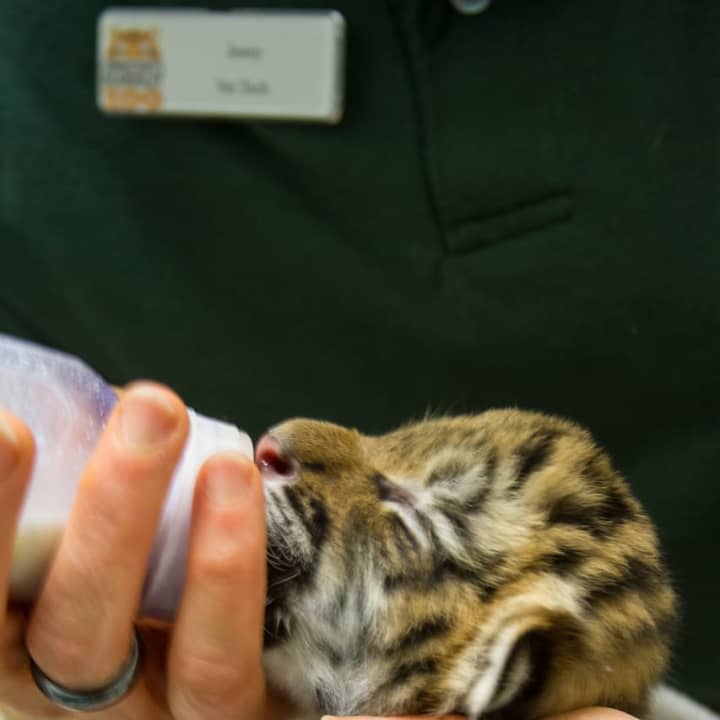The zoo’s 10-year-old Amur tiger Changbai gave birth to four cubs on Nov. 25. Sadly, two died and Changbai showed no interest in the remaining two females, who are being cared for at the zoo’s hospital.
“We are hand feeding the babies five times a day,” said Zoo Director Gregg Dancho. “They are being given a feline milk replacement formula, supplemented with vitamins. They are a little underweight, possibly due to the age of their mother and the fact that there were four kittens in the litter.”
Also known as Siberian tigers, Amur tigers are critically endangered and the zoo’s experts are doing everything they can to get the kittens safely through the first few weeks. It will be several more weeks before they will be available for public viewing.
The kittens are housed in a 90-degree enclosure with a base warmed to 85 degrees to sustain their body heat.
The fact that the pair survived is a bit of a miracle: A female tiger Changbai’s age has only a 20 percent chance of a successful pregnancy.
The kittens’ survival to two weeks was a critical milestone, but it will be another few weeks before they can be considered out of danger.
According to the Association of Zoos and Aquariums’ (AZA) statistics, today’s tigers are thought to occupy less than seven percent of their original range. Threatened by habitat loss and degradation, poaching, tiger-human conflict and loss of prey, four of nine subspecies have disappeared from the wild just in the past hundred years.
“The birth of these kittens brings a few more precious tigers to the population, which can help ensure the survival of these majestic animals for future generations,” Dancho said.
Want to know more? Visit www.beardsleyzoo.com.
Click here to follow Daily Voice Newtown and receive free news updates.



